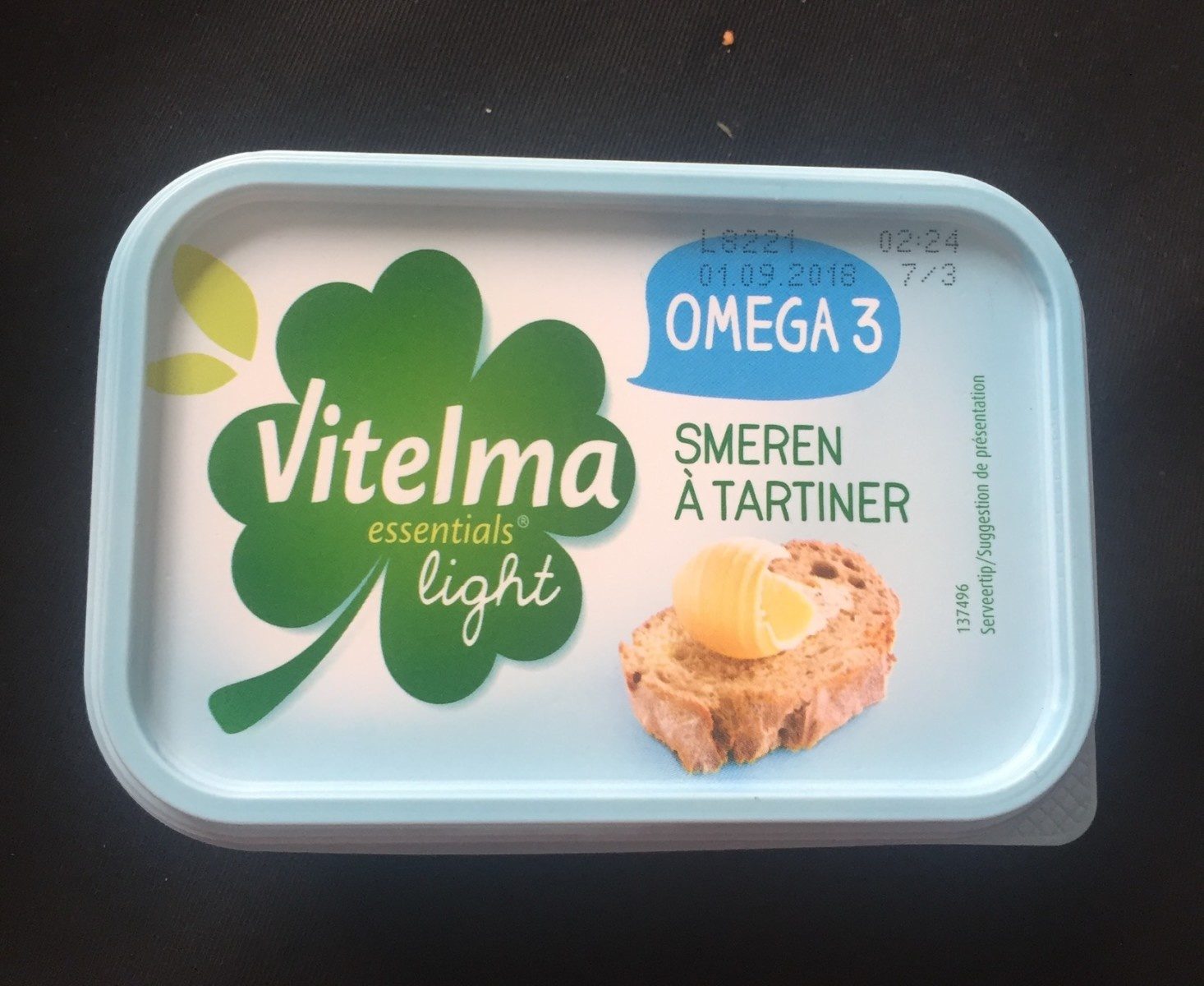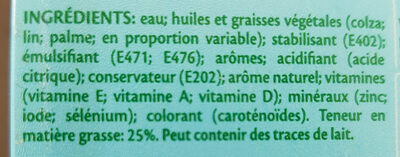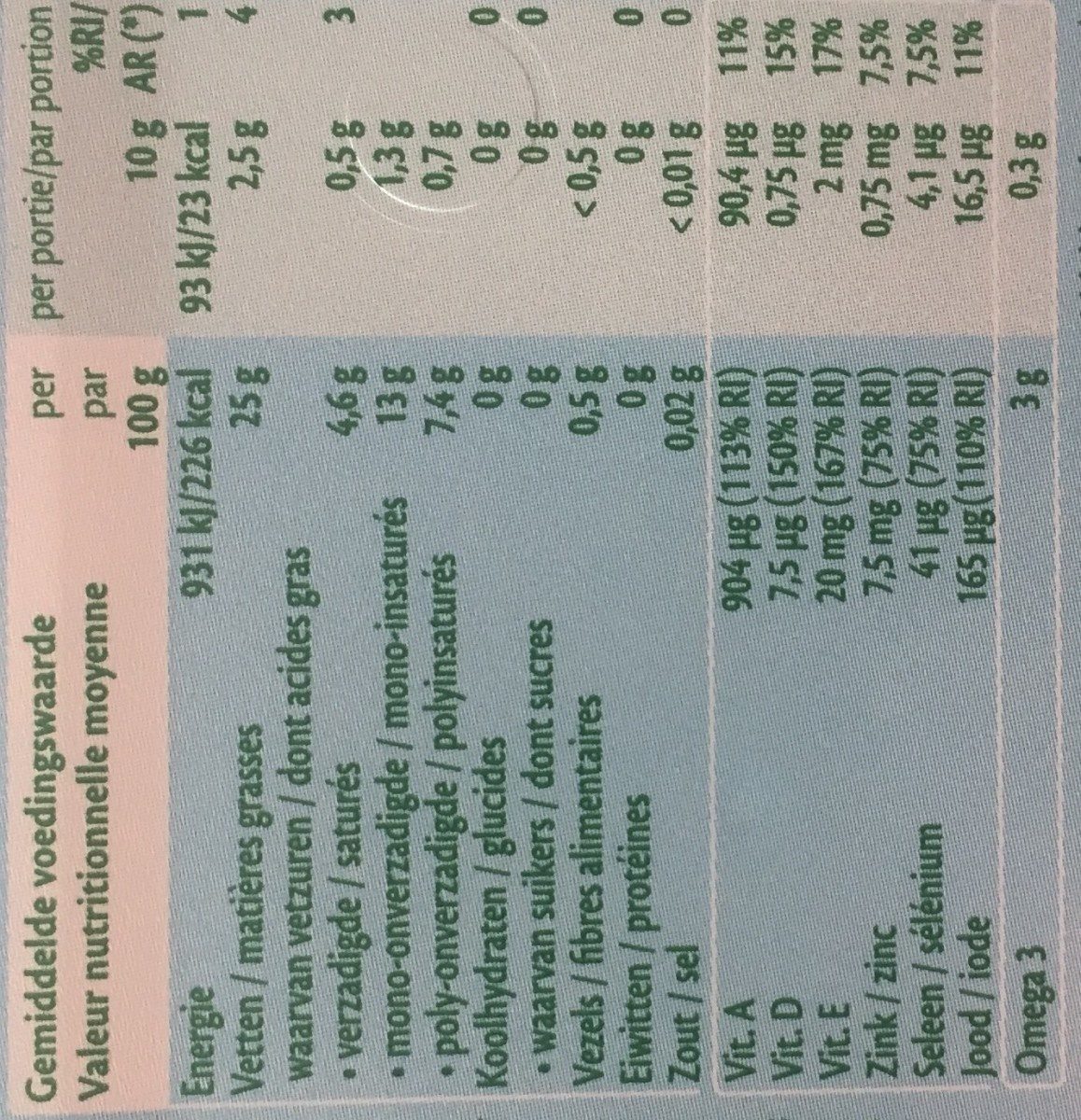Vitelma Light - Smeren à tartiner - 250 g
This product page is not complete. You can help to complete it by editing it and adding more data from the photos we have, or by taking more photos using the app for Android or iPhone/iPad. Thank you!
×
Barcode: 5410093146298 (EAN / EAN-13)
Quantity: 250 g
Brands: Vitelma
Categories: Plant-based foods and beverages, Plant-based foods, Fats, Spreads, Plant-based spreads, Salted spreads, Spreadable fats, Vegetable fats, Animal fats, Margarines, Light margarines, Butter fat
Stores: Delhaize
Matching with your preferences
Environment
Carbon footprint
Packaging
Transportation
Threatened species
Report a problem
Data sources
Product added on by openfoodfacts-contributors
Last edit of product page on by roboto-app.
Product page also edited by aleene, autorotate-bot, countrybot, karbon, kiliweb, mgeoris, quechoisir, radeletp, yuka.RjVFQ0ZmMVJudm8xb013aHh5M2MvTmh1eWNiMEFIeUxLOUl4SVE9PQ, yuka.Wkl3NklxWXR0dHNCdnNWbjhSano5ZFJ3d0wrSGZYdTdkOWNVSVE9PQ, yuka.ZW9wWUQ1MWZoZk1Kbjg4U3h3ckh4SUp2eVlTQVQyYVdkZU1RSWc9PQ, yukafix.











